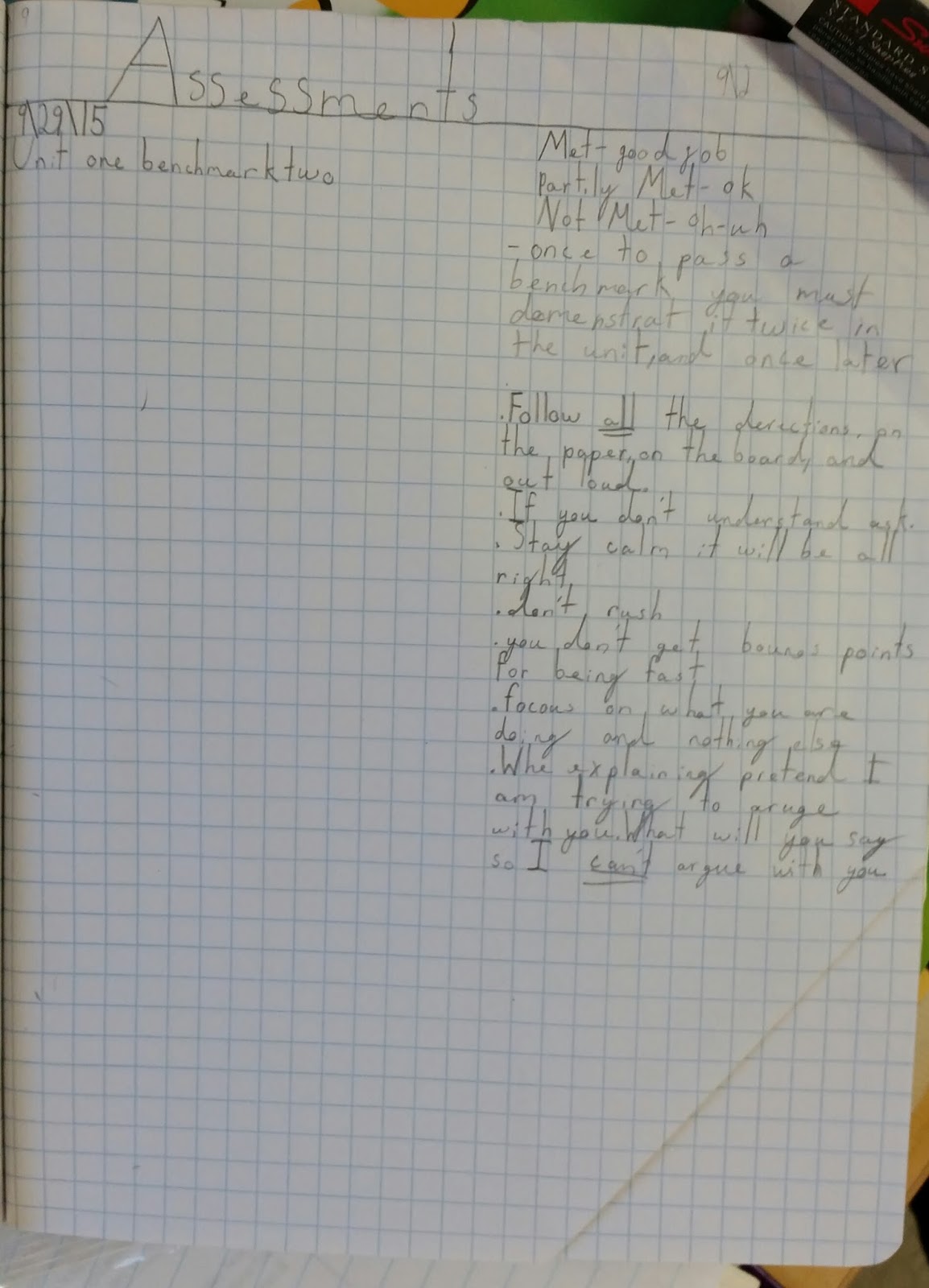So what About Homework?
Ah, homework… everyone’s favorite topic. In some ways, we would all like to just skip it, but it has some important jobs. First, it provides practice of a skill or topic at spaced out intervals to support permanency and automaticity. This is completely necessary. Second, it is assessement and feedback. I look it over to see what is solid and what needs work, both in skills and organization. Third, it gives slower processors a non time pressured way to practice and possibly keep up. Finally, it gives an opportunity to practice the system while the stakes are still pretty low. I slash out all homework which is mindless repetition or busy work on the front end. So, if I assign it, I think that is important that it be done the vast majority of the time.
In order for homework to be useful, both the child, teacher and family will have to play their role. I will start with your part.
Your family will need to be comfortable with, and clearly communicate, that homework which is done and done well constitutes a value for your family. The class standard is “NCC” – neat, complete, and correct. Now, clearly, neat varies from person to person, but it should be neat for your particular student. Everyone has a day when there is illness or an unexpected emergency, or a special occasion, and I am completely fine with that. Just let me know. But special occasions to have a tendency to proliferate. Most of the time, other after school activities are not a reason not to do homework.
The second thing your child will need is space and time to do their work and keep their stuff. They will need a place to work that works for them. If the kitchen table or counter works, completely fine. A desk or table in their room is fine too. You will have to choose what works for your child and family. Your child will need a place to put their books and completed papers (like a drawer or file box). They will need a specific place to put papers which are for you. And they will need some basic supplies- paper, pencils, colored writing implement, a calculating device.
Most children need a dedicated time for homework. It can be a set time, or vary according to the activities of the day, but you are going to have to remind or insist on the time unless your child has completely bought into homework culture. In my personal family, we had family homework time, and everyone did paperwork or homework together, including my husband and I. If it is too late, they may be too tired, so keep that in mind. Each year, I have one organized soul who can mysteriously get it all done neatly in the back of vans and first thing in the am with no support at all. If that is your child, count yourself lucky, and know that you are the super minority.
Your child plays a role as well, of course. They should give each assignment the reasonable best that they have. You may of course guide them. This is an art, and takes practice. Really, it’s not reasonable to hand letter your two spelling sentences every day, but they should be legible. On the other hand, I expect a reader response to reflect two weeks of work, not a half hour the night before. Practice is how you figure this out. Hysteria has never helped anyone to learn more efficiently, so feel free to have them take a break from assignments that are unexpectedly challenging. On the other hand, some people need drama to move along. Don’t let the drama prevent them from moving along.
On routine sorts of homework that are checkable, I expect them to check their work as part of the process. Using a calculator is fine. If their answer is wrong, they should take 5 mins to try to figure out what went wrong and correct it in color. They may well need prompting now, but they should be moving toward doing this independently. If 5 mins work doesn’t show them what they missed, they should leave ALL of what they did, in regular pencil and in color for me to look over. They could also look it over quickly the next morning if they have time. Spelling words should be spelled correctly in one’s spelling homework.
I would also expect any student to express frustration without attacking their family or violating family standards, follow directions as to homework time, take compensating steps if they,say, forget to bring home their agenda, and ask for needed supplies in a polite way and a reasonable time frame.
There is a blog from a couple of years ago which has more detail about organization. Feel free to enforce your family standards in this area. You are at home with your child; I am not. So I tell them that you are the final word.
So finally, I have a role to play in homework. Here’s what I do:
Try to keep the homework amount reasonable and balanced over the days. Sometimes, illness, things like snow days, failure to complete class work or class choice- i.e. having an assessment before a break rather than after- have an impact, but keeping work under control is always on my radar.
Give instructions as to what has to be done. This might be done in class, or in writing for larger assignments.
Assess progress with homework. Because of the nature of our school, a lot of classwork is done
collaboratively. I am checking to see what everyone is “getting” and not “getting” independently. When I see what’s right and what’s wrong, I adapt mini lessons and provocations to add another approach, review, or skip something everyone clearly has. So it’s ok if your child’s best efforts have left the work “wrong.” I need to know, and I will provide support.
Give feedback to allow improvement and maintenance. This tends to vary with the assignment. For super quick simple things like a word sort, it could be a check. For things like reader responses, there will be a lot more writing. I may explain something in writing on the page, or add additional interesting or challenging material. So your student should check their books and journal if they have a question. There is a chance that I have answered it. I really want to encourage them to take initiative, so if they e-mail me directly and I possibly can, I will respond as soon as possible.
Finally, I give reasonable consquences to those who do not complete their work. Often this is doing it at lunch or break or first thing in the morning. If that doesn’t get the job done, it may be added to the following night’s work (this could lead to a lot of homework in one night). If the assignment was to prepare for an in class activity, they might not be able to participate, as they are not prepared. Or, there might be a “grade penalty” for late work like reader responses. There are occasions where I am not off schedule during the day for some reason, and an assignment waits a day to be checked, but I have to do what they have to do times nine. As for them, the pile grows quickly, and I don’t want to get behind.
It takes more practice than you would think to master doing homework calmly. If you haven’t made it a part of your family routine, it will take attention from you. Also, when a totally new type of assignment comes home, you may want to look it over with them. Make sure that the time and supplies are ready to go, and help them problem solve questions they may need to ask at school. The payoff is that in the storms of adolescence, they will know what to do, and you will just have to listen to them complain about it. That part never goes away.
The post So what About Homework? appeared first on Sabot at Stony Point.
SHARE THIS POST


















